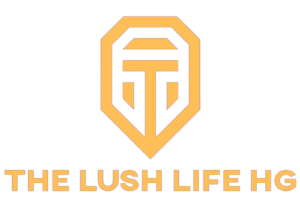The wholesale market offers many possibilities for suppliers and stores trying to take advantage of the rising demand for shoes. Businesses must use strategic techniques to keep ahead of the changing trends and be more competitive in their industries. Success in the wholesale shoe business depends on knowing essential factors such as market trends, product variety, quality control, and price policies. This article explores these critical areas and provides ideas to optimise stores’ and suppliers’ processes.
Success in the wholesale shoe business depends on keeping up with the newest trends. Driven by fashion, technology, and cultural changes, footwear styles and customer tastes are constantly evolving. Wholesale shoe suppliers and stores must aggressively track these trends to ensure their product lines continue to be enticing and relevant to final customers. For instance, the emergence of athleisure has fundamentally changed the wholesale shoe industry and raised the demand for casual and athletic shoes. Furthermore, sustainability has become a significant issue as more companies look for ecologically responsible shoe solutions to satisfy customers who care about their surroundings. Monitoring these patterns helps wholesale shoe companies decide how to allocate their inventory and marketing plans.
Increasing Product Diversity in the Wholesale Shoe Market
Maintaining a competitive advantage in the wholesale shoe business depends much on product variety. Retailers are seeking vendors that can provide a large selection of shoes to meet a variety of consumer wants more and more. Attracting and keeping business customers depends on providing an extensive range of wholesale shoe items, regardless of their type—athletic shoes, formal wear, or seasonal trends.
Furthermore, providing niche items, including sustainable or vegan shoes, helps providers stand out in the packed wholesale shoe industry. Understanding the particular demands of various retail sectors allows companies to customise their product offers to fit demand and strengthen customer bonds.
Success in the wholesale shoe sector depends mainly on quality control. Retailers rely on suppliers to provide shoes that satisfy stringent durability, comfort, and style criteria. Maintaining confidence with business customers depends on guaranteeing consistent quality across all wholesale shoe items in a market where reputation is critical.
Wholesale Shoe Market Strategic Pricing
In the wholesale shoe sector, competition mostly depends on price. Retailers and suppliers must create price plans that pay for expenses and provide value for their corporate customers. Volume-based discounts and flexible pricing policies may encourage more significant purchases and long-term relationships in the wholesale shoe sector. Furthermore, closely observing competition pricing and market variations helps companies to modify their plans. Reviewing and improving price policies regularly guarantees that companies stay competitive even if their profit margins in the wholesale shoe market remain strong.
With many stores prioritising eco-friendly items, sustainability is becoming even more crucial in the wholesale shoe business. Providers of sustainable footwear choices—such as shoes made of recycled materials or organic textiles—are positioned to grab a more significant portion of the market. Apart from product innovation, using sustainable methods in production and transportation would help a supplier appeal more in the wholesale shoe market. Encouraging sustainable projects and environmentally friendly items can help a company stand out in the wholesale shoe sector and attract stores dedicated to environmental responsibility. This satisfies ethical customers’ needs and supports brand loyalty and long-term success.
Conclusion
The wholesale shoe market offers significant opportunities for suppliers and retailers prepared to navigate its complexities with strategic insight. Businesses can thrive in this dynamic industry by staying attuned to market trends, diversifying product offerings, ensuring quality control, and implementing effective pricing and marketing strategies. As sustainability and innovation continue to shape the wholesale shoe market, suppliers and retailers must remain adaptable and forward-thinking to achieve long-term success.














